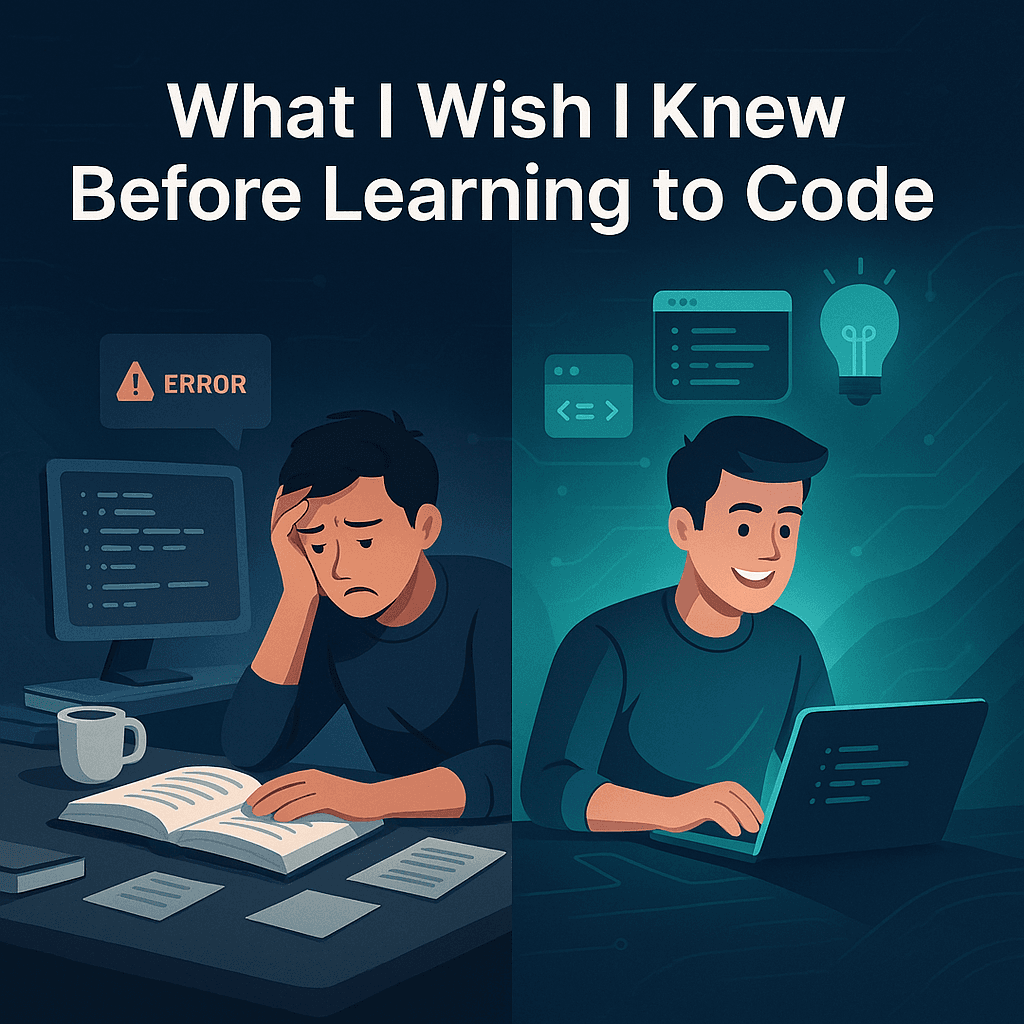If I could go back and talk to myself when I first started learning to code, I'd save months of frustration and countless hours of going down the wrong path. Here's the honest truth about learning to code that no one tells beginners.
It's not about being naturally gifted. It's about persistence and strategy.
⚡The Reality Check Nobody Gives You
❌ What People Think
- • "Learn to code in 30 days!"
- • "You need to be naturally good at math"
- • "Memorize syntax and algorithms"
- • "Build perfect code from day one"
- • "Pick one language and stick to it forever"
- • "Coding bootcamp = guaranteed job"
✅ The Actual Truth
- • Learning never stops (and that's exciting!)
- • Problem-solving matters more than math
- • Google and Stack Overflow are your friends
- • Messy code is normal for beginners
- • You'll use multiple languages in your career
- • Building projects teaches more than tutorials
The Biggest Misconception
You don't need to be a "math person" or "naturally logical."Some of the best developers I know struggled with traditional math but excel at breaking down problems into smaller pieces. Programming is more about patience and persistence than raw intelligence.
🧠Essential Mindset Shifts
From "I'm Not Smart Enough" to "I Haven't Learned This Yet"
❌ Fixed Mindset
- • "I'm not a coding person"
- • "This is too hard for me"
- • "Other people pick this up faster"
- • "I should understand this immediately"
✅ Growth Mindset
- • "I can learn this with practice"
- • "This is challenging, but doable"
- • "Everyone learns at their own pace"
- • "Confusion is part of the learning process"
Embrace the Struggle
Confusion is Normal
Feeling lost? That means you're learning something new and challenging your brain.
Bugs are Teachers
Every error message is your code trying to tell you something. Learn to listen.
Progress Over Perfection
Working code beats perfect code. You can always refactor later.
📚Learning Strategy That Actually Works
The 70-20-10 Rule
Building Projects
- • Personal projects
- • Code challenges
- • Contributing to open source
- • Rebuilding existing apps
Learning from Others
- • Code reviews
- • Pair programming
- • Developer communities
- • Mentorship
Formal Learning
- • Tutorials and courses
- • Documentation
- • Books and articles
- • Conference talks
Pro tip: Stop tutorial hell by building something after every major concept you learn. Watched a video about functions? Write a small program using functions. Learned about APIs? Build something that consumes an API.
Your Coding Journey Starts with One Line
Remember: every expert was once a beginner. The difference between those who succeed and those who quit isn't talent—it's persistence and the right approach.
